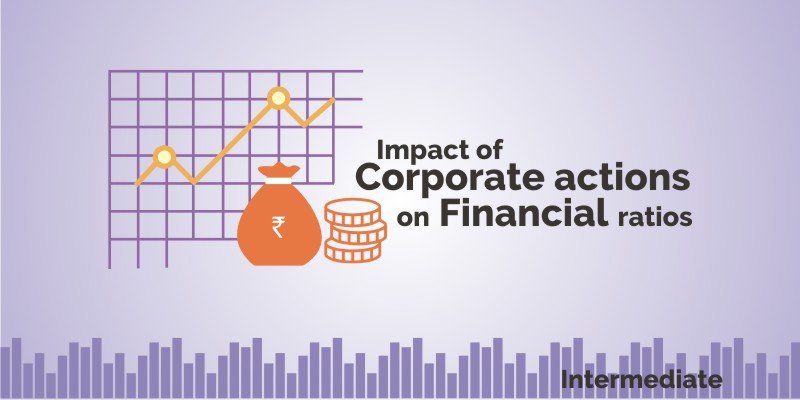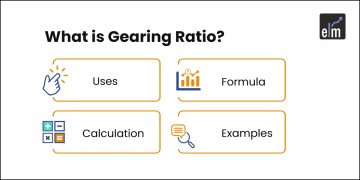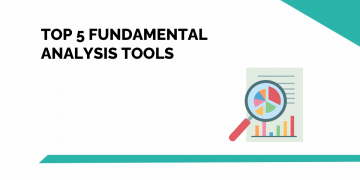The immediate impact of corporate actions is seen in the share prices.
So it is very important for us to understand the Corporate actions – Meaning and their calculations to help us in making investment decisions.
In our previous blog on How do Corporate Actions affect the Share Market, we have discussed what are corporate actions and the purposes of corporate actions.
Also, we discussed the various types of corporate actions briefly.
| Table of Contents |
|---|
| Buyback of Shares |
| Rights Issue |
| Bonus Shares |
| Key Takeaways |
In this blog, we will discuss the impact of corporate actions on financial ratios along with their types.
1. Buyback of Shares
Buyback of shares refers to the process of a company repurchasing its own shares.
When the company purchases its own shares, then the outstanding shares in the market get reduced and hence the investor’s stake increases as the number of shares have reduced in the market.
Buyback can be performed either through a tender offer route or through the open market.
Now let us understand how does Buyback of shares affect the financial ratios of the company.
Suggested Read: Know everything about Corporate Actions
Impact on Earnings Per Share (EPS):
EPS is calculated by dividing the net income by the total outstanding number of shares during the year.
The buyback of shares affects the EPS of a company.
The EPS of the company improves post buyback.
The reason being the outstanding number of shares is reduced and hence the earnings get increased.
Let us understand this with the help of an example:
Company – XYZ Ltd
Outstanding Shares – 100 crore shares at the beginning of a year.
Net Income – Rs 500 crores,
EPS = Rs 5 (500/100).
Buyback Shares = 10 cr shares
Hence the outstanding number of shares post buyback is 90 crores (100-10).
Now the Revised EPS is 5.55 (500/90).
Hence, as mentioned before, the EPS increases due to a reduction in the outstanding number of shares.
So in this way, buyback gives a positive outlook of the company due to an increase in EPS which is the measure of the company’s profitability.
Impact on debt to equity ratio:
The debt to equity ratio measures the financial leverage of the company.
It is calculated by dividing the total debt by the Total Equity during the year
It represents the proportion of debt a company takes to finance its operation.
Buyback of shares reduces the equity of the company.
Since the equity of the company is reduced it increases the debt to equity ratio of the company.
For Example, a company has debts amounting to 50 crores.
The company’s equity is 100 crores before the buyback.
The company has undertaken buyback worth 10 crores during the year which reduces the equity of the company to 90 crores (100-10).
Hence the debt to equity ratio deteriorates from 0.5 (50/100) before buyback to 0.55 (50/90) post buyback
Thus a rise in debt-equity ratio negatively impacts a company’s profitability
Impact on book value per share:
Book value per share is derived by dividing shareholder’s equity by the total outstanding shares.
A company’s book value per share will decrease after a share repurchase if the market price per share was greater than the book value per share prior to the repurchase and vice versa.
This is explained in two situations below:-
For example,
Case 1:
XYZ is a company with 1,00,000 shares outstanding.
The shareholder equity value of the company is 15,00,000 and hence the book value computed is Rs15 (15,00,000/1,00,000).
Now let us assume the company buybacks 10,000 shares @10 per share amounting to Rs 1,00,000.
Post the buyback of shares, the shareholder’s equity value of the company has reduced to 14,00,000 (1500000-100000) and the book value per share has increased to 15.56 (1400000/90000).
In this case, the book value per share was less before buyback hence buyback resulted in an increase of the book value of share
Thus this impacts a company positively as it increases the worth of the company.
Case 2:
XYZ is a company with 100000 shares outstanding.
The shareholder equity value of the company is 800000 and hence the book value computed is Rs 8 (800000/100000).
Now let us assume the company buyback 10000 shares @10 per share amounting to Rs 100000.
Post the buyback of shares, the shareholder’s equity value of the company has reduced to 700000 (800000-100000) and the book value per share has decreased to 7.77 (700000/90000).
In this case, the book value per share was more before the buyback hence buyback resulted in a decrease in the book value of the share.
Thus this gives negative feedback about the company The effect of a corporate action should be always be measured before taking any investment decision.
2. Rights Issue
Rights issue is an offering to the existing shareholders of the company which makes them eligible to buy additional shares in the company at a discounted price to the prevailing market price of the shares.
The rights issue on shares can be subscribed by the existing shareholders proportionately to the number of shares being held by them on the record date.
After the ex-date the prices of the company get adjusted in proportion to the shares issued as rights.
Impact on Debt to Equity Ratio:
Rights issue of shares improves the debt to equity ratio of the company.
Debt to equity ratio is computed by dividing the debt value of the company by the total equity of the company.
When the company issues right shares, the company’s equity value is increased.
Therefore the debt to equity ratio improves since the company has raised money through the right issue of shares and not debt
For example, XYZ Ltd has 100 crores in its debt and has 300 crores equity.
The company plans to issue the right shares amounting to 30 crores to its existing shareholders to finance a new project.
The debt to equity improved from 0.33 (100/300) to 0.30 (100/330) post rights issue.
Therefore, the right issue improved the debt to equity ratio since the debt-equity ratio declines due to the raising of funds thus it will aid the company for future expansions. Thus it positively impacts the company.
Impact on EPS:
EPS is computed by dividing the net income by the total outstanding shares of the company.
In a right issue, the number of shares increases, and hence the earnings per share is reduced.
Moreover, to keep the EPS constant post right issue, the company’s profit should increase to a greater extent in the future to compensate for the additional shares.
For Example, XYZ Ltd has net income of 10 crores during the year. The company has 1 crore shares outstanding during the year. The company has issued 10 lakh shares as rights shares to the existing shares.
Therefore the EPS of the company has reduced from 10 (10/1) to 9.09 (10/1.10) post rights issue…
Thus earnings per share get negatively impacted due to a rise in a number of shares hence an overhang on the earnings of the share. Thus decreasing EPS is not an investor’s favorite.
3. Bonus Shares
Bonus shares are referred to as the shares which are offered to the existing shareholders free of cost as fully paid up shares.
Bonus shares are issued by companies to capitalize on their free reserves. They share their retained earnings with their shareholders in the wake of absence of any capex or expansion in the near future.
Thus if a shareholder has 100 shares and is offered 25 shares as bonus and if the share price was Rs. 1000 then at ex-date the share price of the company will trade at Rs. 800. Thus the investment value will remain the same only the number of shares would increase.
Impact on EPS:
EPS is computed by dividing the net income of the company by the total outstanding number of shares.
In case of bonus, the company issues bonus shares to its existing shareholders on a proportionate basis.
Also Read: Corporate Action – Is it a call to action for a Shareholder?
Therefore bonus issue of shares reduces the EPS of the company.
For example, XYZ Ltd has reported net income of 10 crores for the year and has 1 crore shares outstanding during the year.
The company issues bonus shares in the ratio of 1:1 during the year.
The bonus shares are shares that are offered free of cost to the existing shareholders and hence it only increases the number of shares outstanding.
Hence the EPS of the company during the year falls from 10 (10/1) to 5 (10/2) post bonus shares. Thus the number of shares held increases but the price of the share decreases proportionately.
Dive deeper into advanced technical analysis and master the impact of corporate actions on financial ratios now!
Key Takeaways
- Buyback of shares improves the earning per share of the company.
- Buyback of shares adversely impacts the debt to equity ratio of the company.
- Buyback of shares impacts book value per share both positively as well as negatively
- Rights issue of shares positively impacts the debt to equity ratio of the company.
- Rights issue of shares negatively impacts the earnings per share of the company.
- Bonus issue of shares adversely impacts the earnings per share of the company.
In order to get the latest updates on Financial Markets visit stockedge.











I believe you have noted some very interesting details , thankyou for the post.